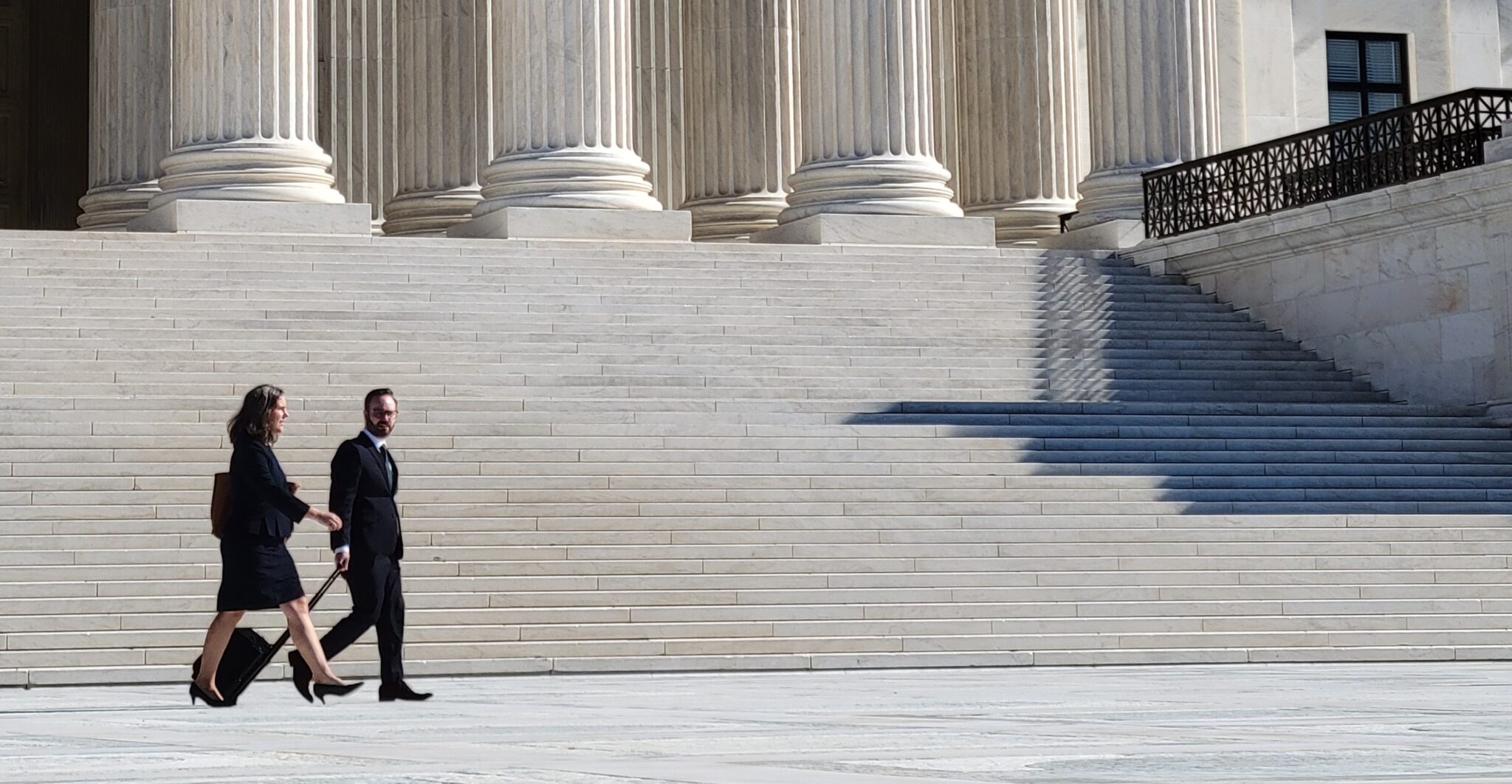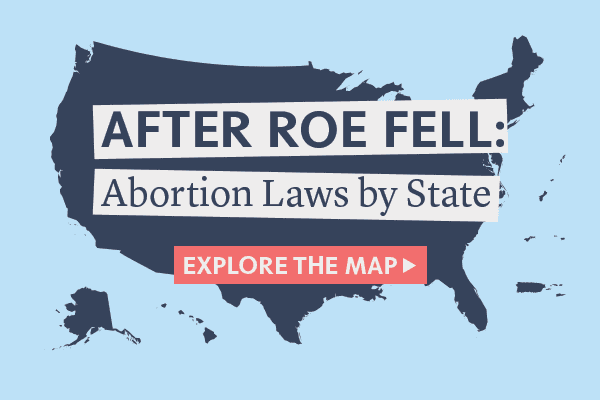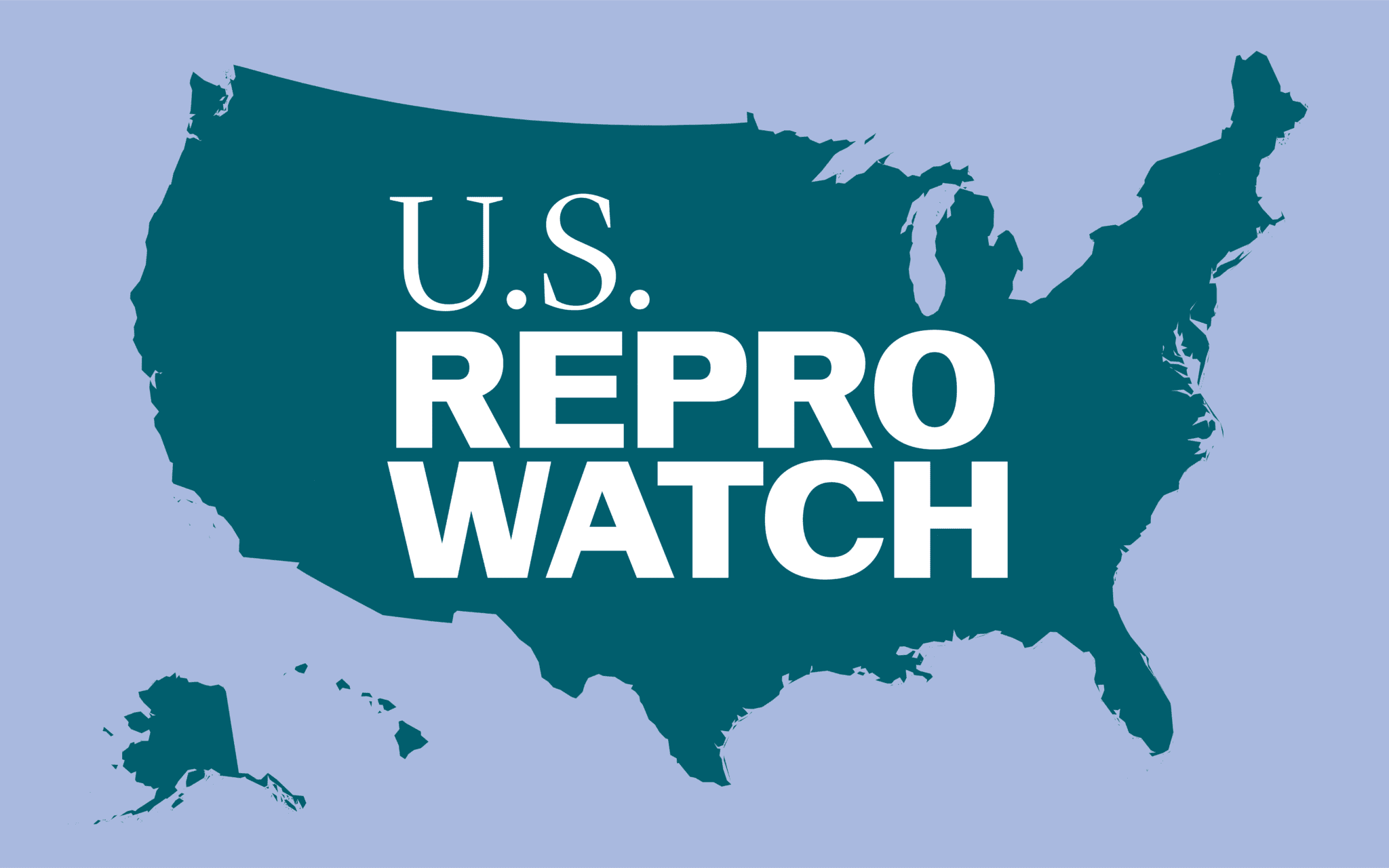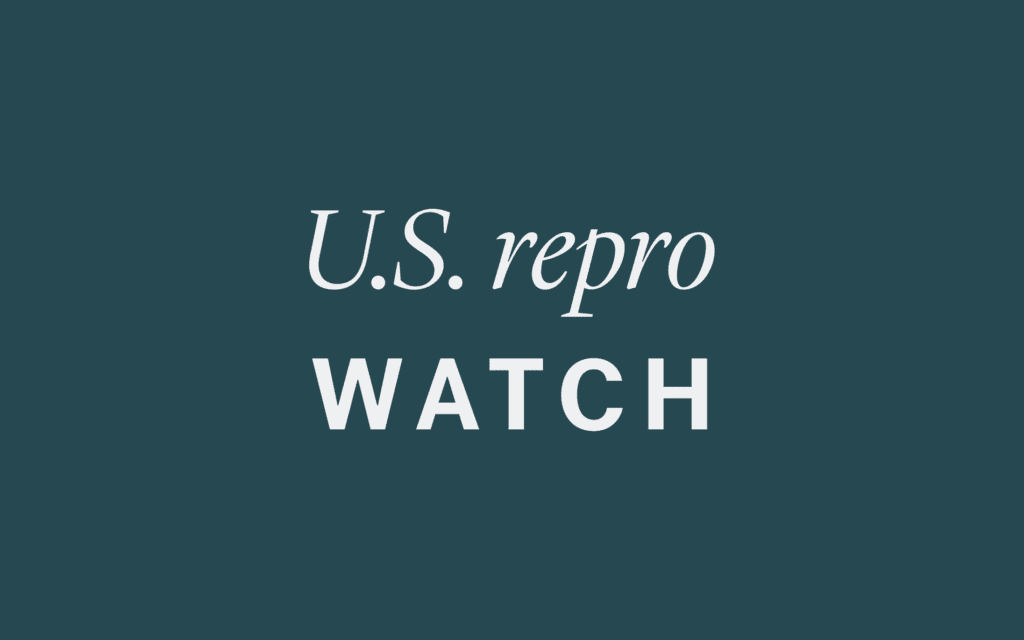U.S. Repro Watch, October 4
Abortion battles in the states, a new SCOTUS term, and other news on U.S. reproductive rights.
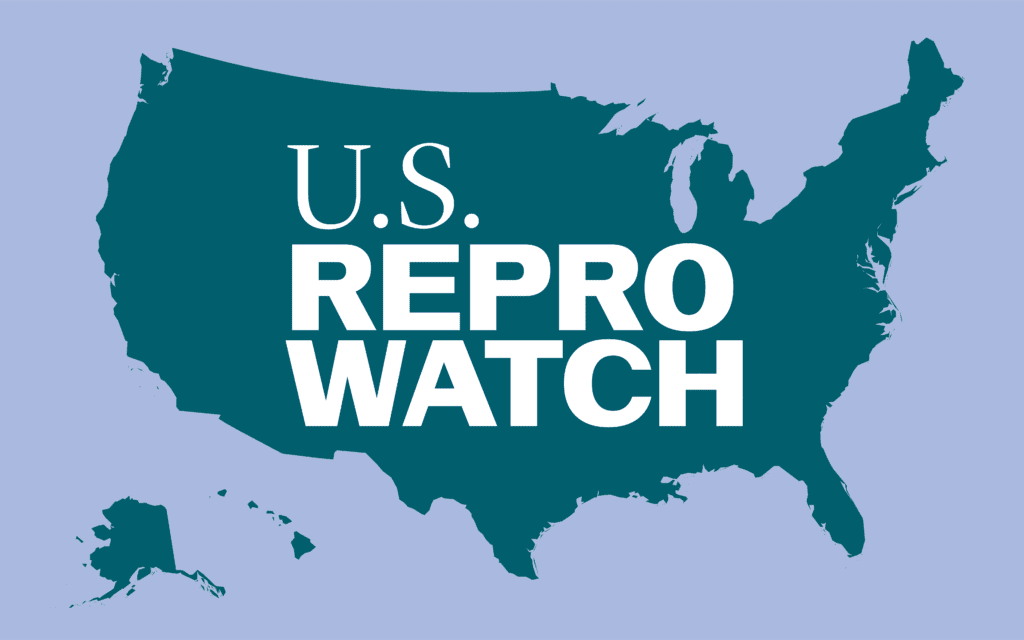
U.S. Repro Watch provides periodic updates on news of interest on U.S. reproductive rights. Here are a few recent items you won’t want to miss:
The battle over abortion rights continues in the states. . .
1. New Jersey state officials proposed a rule to allow midwives to provide abortion care.
- The potential new rule, proposed by the state’s Board of Medical Examiners, would allow midwives to perform abortions through the 14th week of pregnancy and help the state meet the rising demand for abortion care.
2. California Gov. Gavin Newsom signed several bills aiming to protect abortion providers in the state.
- One of the bills allows doctors living in restrictive states to receive abortion training in California.
- Gov. Newsom also named Laphonza Butler, president of Emily’s List, an organization that works to elect pro-abortion-rights women, to fill the Senate seat left vacant by Dianne Feinstein’s death.
Read more.
Recent Case Highlights
Get an update on the latest rulings and developments on the Center’s cases.
3. A Missouri court rejected the biased anti-abortion language in a protective abortion rights ballot measure.
- Cole County Circuit Judge Jon Beetem found that the ballot summary language proposed by Missouri’s Secretary of State—which described the proposed 2024 amendments as allowing “dangerous and unregulated abortions” —was “problematic.”
4. A federal appeals court paused a lower court’s ruling that blocked a portion of Idaho’s total abortion ban.
- After a lower court had blocked enforcement of the state’s abortion ban against providers treating pregnant patients in certain medical emergencies, the Ninth Circuit Court of Appeals on September 28 granted the Idaho Attorney General’s request to pause that order while the state’s appeal proceeds.
- Idahoans experiencing serious pregnancy complications have already been facing denials and delays in accessing care.
5. Texas and Yelp sued each other over notices about anti-abortion “crisis pregnancy centers.”
- Yelp, the business review platform, sued Texas Attorney General Ken Paxton on September 27 to ensure it could continue to notify users that anti-abortion crisis pregnancy centers do not provide abortion care.
- The following day, Texas sued Yelp, claiming that the notices violated Texas law. Yelp argues that its notices are truthful and that Paxton’s lawsuit infringes on its free speech rights.
Where do U.S. state abortion laws stand now?
Where is abortion banned? Where is it protected? Get all the details with this valuable tool.
6. A Montana court temporarily blocked a law that threatened to shut down abortion clinics in the state.
- Although the law requires licensing by the Montana Department of Public Health and Human Services, the agency has not yet established the licensure rules under the law.
Did you know?
The U.S. Supreme Court started its new term on October 2 and is expected to decide several cases on significant issues. One involves whether people who have domestic violence restraining orders against them can possess firearms and whether a law prohibiting them from doing so violates the Second Amendment. The case, United States v. Rahimi, is scheduled for arguments on November 7. (The Center and its pro bono partner, Proskauer Rose LLP, filed an amicus brief in the case in support of the law, which helps protect pregnant and postpartum people from gun violence.)
In addition, the Biden administration is waiting to find out if the Court will weigh in and reverse a lower court decision in Alliance for Hippocratic Medicine v. FDA that would dramatically limit access to the key abortion drug mifepristone.
U.S. Repro Watch
Read previous U.S. Repro Watch posts.
Coming Up
In international news, Brazil’s Supreme Federal Court has begun voting on a lawsuit that seeks to decriminalize abortion up to 12 weeks of gestation nationwide. The lawsuit, known as ADPF 442, examines the constitutionality of articles 124 and 126 of the Brazilian Penal Code, which criminalize abortion. In Brazil, unsafe abortion is currently the leading cause of maternal death. “We trust that the Court will make it possible for Brazil to join the Latin American Green Wave that has recently made progress in access to abortion in Colombia, Mexico, and Argentina,” said Carmen Cecilia Martínez, the Center’s Associate Director of Legal Strategies for Latin America.
Watch this video and learn more: “Let’s break it down! Why is it crucial for Brazil to decriminalize abortion? Our experts have the answers in under 2 minutes.”
